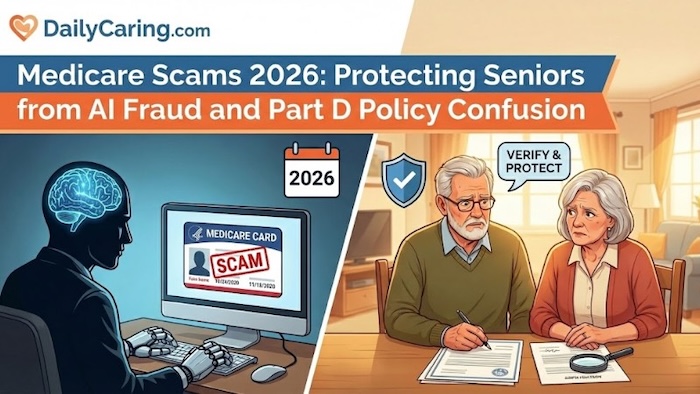Navigating Medicare can feel like trying to read a map in a foreign language. You know it's essential for the journey, but the rules, parts, and fine print are overwhelmingly confusing.
For caregivers helping an older adult manage their health, not knowing what is covered can lead to unexpected bills, denied claims, and significant financial stress. But you don't need a degree in healthcare administration to gain clarity. Think of this not as a maze to get lost in, but as a system to master.

Let's break down exactly what Medicare does and does not cover, empowering you with the knowledge to confidently plan for your loved one's healthcare needs and avoid costly surprises.
Avoid Surprise Bills by Knowing What Medicare Covers in Advance
Because Medicare is so complex, seniors can end up getting blindsided by huge medical or prescription medication costs when the bills arrive.
That’s why it’s essential to figure out what Medicare will cover, what counts toward the deductible, what the co-pay will be, and how much will be paid out of pocket.
Estimating costs in advance means everyone will be better prepared when the bills arrive.
What Medicare covers is also important to know when it’s time to choose your older adult’s healthcare and prescription drug plans for the following year.
Estimating costs in advance helps you choose plans that maximize coverage and minimize expenses.
We explain how to determine whether Medicare will cover something, how to estimate costs for complex services, and where to get help understanding Medicare benefits.
What Does Medicare Cover? 3 Helpful Resources
In general, diagnostic tests (like X-rays or CT scans), preventive care check-ups, most surgeries, and hospital stays are covered.
Things like long-term care, dental, and hearing aids aren’t covered.
What Does Medicare Cover? Here Are 3 Great Suggestions
- Ask the doctor or nurse at a medical facility if they accept an older adult’s specific Medicare plan for whatever is getting done – office visit, test, item, procedure, etc.
- Go to Medicare.gov website, then scroll down to enter the test or service and click “Go” (to search for it).
- Check the search results to see whether the item is covered and how much the patient will have to pay.
If the search doesn’t show the item you're looking for, Medicare also provides an alphabetical list of various services and medical equipment. Click through an item to check the coverage.
How to Estimate Medicare Costs for Complex Services
If an older adult needs something more complex, like surgery, look it up and also review the additional instructions for estimating those costs.
Generally, costs will be based on:
- How much the doctor(s) and/or hospital will charge
- If your older adult has other insurance plans
- How much of their deductible remains
Get Additional Information About Medicare Coverage
The Medicare website also has helpful information about the different Parts of Medicare, preventive services, what to do in a disaster or emergency, and more.
Beneficial pages are:
- Find a doctor, hospital, facility, or plan that accepts Medicare
- Find local shops that sell covered medical equipment and supplies
- What Medicare Part D drug plans cover
Free State Insurance Counseling Programs are Available to Help
If you have trouble estimating costs for your older adult’s medical care, you’re not alone – it can get confusing.
Take advantage of the free counseling available through the State Health Insurance Assistance Program (SHIP).
SHIPs are official state programs that help people understand their Medicare, Medicare Advantage, Medigap, and Medicaid benefits.
Get more info about how these programs work and where to find your state’s SHIP.
Final Thoughts About Medicare Coverage
Understanding Medicare is more than just deciphering benefits; it's a proactive step in safeguarding your loved one's health and financial well-being. With this foundation, you are no longer a passive observer but an informed advocate, equipped to ask the right questions and make strategic decisions.
Remember, this knowledge is your power. Use it to review their current coverage, explore supplemental plans during enrollment periods, and confidently navigate the healthcare system. Your diligence in learning these essentials is a profound act of care that provides both security and peace of mind for the road ahead.
Recommended for you:
- Medicare Coverage for Hospital Stays: Inpatient vs Observation Status
- What Medicare Does and Doesn’t Cover for Alzheimer’s Care
- Medicare vs. Medicaid: What You Need to Know
About the Author

Connie is the founder of DailyCaring.com and was a hands-on caregiver for her grandmother for 20 years. (Grandma made it to 101 years old!) She knows how challenging, overwhelming, and all-consuming caring for an older adult can be. She also understands the importance of support, especially in the form of practical solutions, valuable resources, and self-care tips.













